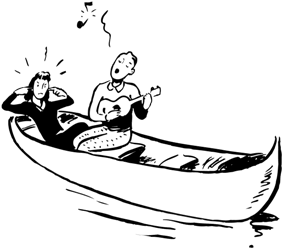Future Perfect Tense
(futuro perfecto)
El Future Perfect (futuro perfecto) no es un tiempo verbal muy común en inglés. No obstante, deberías entenderlo bien y comprenderlo cuando lo escuchas.
Click Here for Step-by-Step Rules, Stories and Exercises to Practice All English Tenses
¿Qué sigue?
¿Cómo utilizamos este tiempo verbal?
Aquí, PERFECTO significa "completado, terminado".El Future Perfect (futuro perfecto) es una forma del verbo que muestra que la acción será completada antes de algún momento en el futuro.
No significa que la acción será "perfecta" (100%). Significa que la acción será terminada.
Estos son
algunos de los diferentes usos que tiene este tiempo verbal:
- Una acción que ocurrirá antes de un momento específico en el futuro
-
Un estado que continuará hasta algún momento en el futuro
Nota: este es un uso más amplio de este tiempo verbal.
Por lo general se utiliza con estados, no con acciones.
Por ejemplo: Jake will have passed his exams before he gets his degree. (Jake habrá aprobado sus exámenes antes de recibir su título.)
Asegúrate de leer también:
Ejemplos de Expresiones de tiempo típicosUna
acción que ocurrirá
antes que otra acción en el futuro
(Los verbos están en negrita)
He will have prepared by
the time he leaves the house.
(Él se habrá preparado para cuando salga de la casa.)

He will have played before
the season ends.
(Él habrá jugado antes de que termine la temporada.)

His wife will have made
dinner by the time he returns.
(Su esposa habrá preparado la cena para cuando él llegue.)

(Para cuando salga del bar, habrá tomado mucho.)

He will
have destroyed the book before his parents arrive.
(Habrá destruido el libro antes de que lleguen sus padres.)

He will
have ruined her ears by the time they get home.
(Él le habrá arruinado los oídos para cuando lleguen a casa.)

Una
acción que ocurrirá antes de
un momento específico en el futuro
He will have returned home
by 6 o'clock.
(Él habrá vuelto a casa para las 6 horas.)

By midnight, they will have
partied
like crazy.
(Para la medianoche, habrán festejado mucho.)

By tomorrow, he will
have slept well.
(Para mañana, habrá dormido bien.)

All his teeth will have come in by next
year.
(Todos sus dientes habrán salido para el año que viene.)

Un
estado que continuará hasta
algún momento en el futuro
Tomorrow he will have been
sick
for 2 weeks.
(Mañana habrá estado enfermo durante 2 semanas.)

Next week she will have already lived 6 months in
the country.
(La semana que viene, ya habrá vivido en el país durante 6 meses.)

He will
have worked for us for 10 years next August.
(Habrá trabajado para nosotros durante 10 años en agosto.)

Ejemplos
de
expresiones de tiempo típicos
- By the time
(Para cuando)
- At this time tomorrow
(Mañana a esta hora)
- By next week
(Para la semana que viene)

¿Qué sigue?
Get Updates, Special Offers, and English Resources
Download your FREE GIFT (the first two chapters of
English Short Stories Book and Workbook)
as soon as you join!

By submitting your email, you consent to receiving updates and newsletters from us and to the sharing of your personal data with third parties for the purposes of sending you communications. We will not spam you. You can unsubscribe at any time. For more information, please see our privacy policy.





